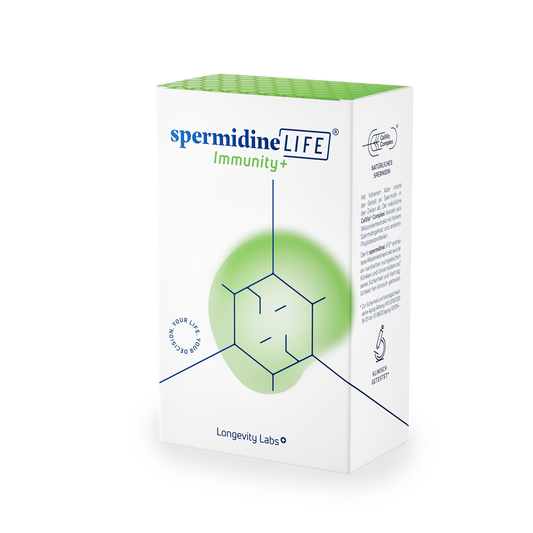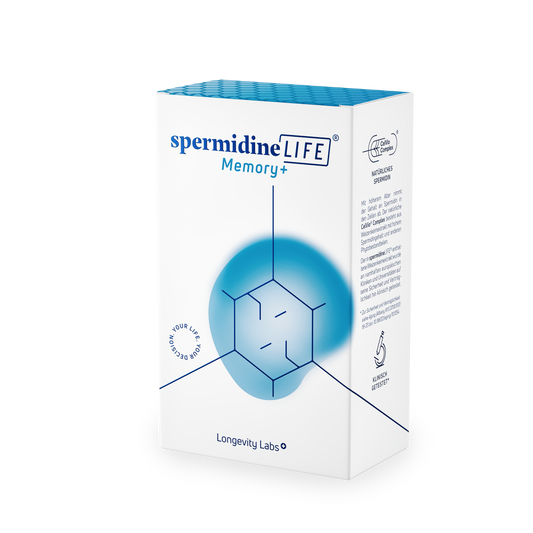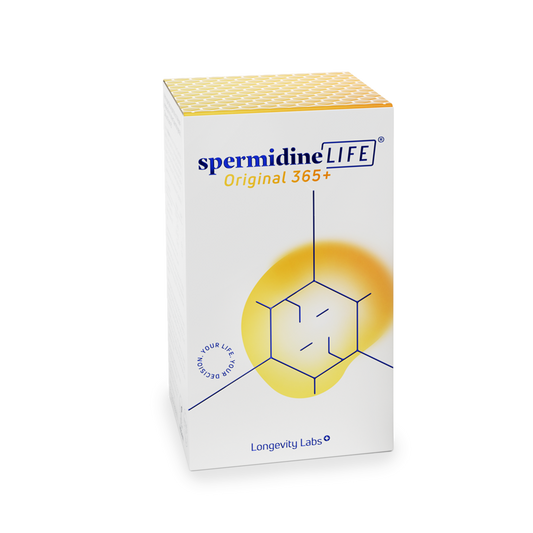
The hippocampus: Why we need it and how we strengthen it
Science, TLL LongevityLabsTraining for our gray cells is becoming more and more important to not lose our cognitive capabilities even with increasing age and keep our brain cells “young”. Various regions of the brain are involved in the development of our memory, our sense of direction and processing emotions. One of the most important is the hippocampus.
Aside from physical health, maintaining our cognitive and mental abilities becomes ever more important with age. With life expectancy constantly increasing and our brain cells continuously losing power, strengthening and training for these gains more and more priority for the best possible prevention of various illnesses, such as any forms of dementia.
The hippocampus is one of the regions of the brain that is not only affected by many forms of dementia, but which also grows smaller over the course of its life even without any progressive disease conditions.
The hippo-what?
Evolutionarily speaking, this part of our brain is very old – information from various other brain regions flows together here, is processed, and is then sent back to our cerebral cortex. For exactly this reason, the hippocampus plays an enormous role in transmitting short-term memory images to long-term memory – in short, in forming memories. But that’s not all it does: It’s also crucial to content coordination. This means that the hippocampus sorts the information we accumulate into appropriate categories. This includes language knowledge, and also our sense of direction! So when we’re in a city and have a sort of “map” in our mind with the locations of important landmarks, this is the work of the hippocampus.
But that’s not all
This brain region is also indispensable for processing emotions. Various studies on memory have shown that the hippocampus works very closely with the amygdala. This part of our brain is particularly responsible for emotionally evaluating impressions and for linking these to various feelings. This means: The more active the amygdala is for any event, the better we can remember it!
The hippocampus’ involvement in so many facets of our everyday lives makes it no surprise that shrinking of the hippocampus, or lack of it altogether, has a strong impact on our lives.
Living without a hippocampus
People with pieces of their hippocampus missing or destroyed cannot form new memories, for example, and have problems categorizing emotions. Things already stored in the cerebral cortex continue to be accessible to those affected, however. This is a further indication for the leading role the hippocampus plays in forming new memories.
However, not only does the size and presence of the hippocampus affect health, but our environment conversely affects the size of the hippocampus. Many studies have already discovered that people suffering from depression display reduced volume in this region of the brain. A similar effect has also been seen in connection with severe emotional trauma, reduction of the volume of the hippocampus of those affected has been demonstrated here as well.
And that’s not all: The degradation processes involved in various forms of dementia can also cause lasting damage to this brain region. A connection between epilepsy and the hippocampus has also been discovered.
Not only neurological disorders can affect development in this area of the brain, however. Our lifestyles, as well, have a great effect on hippocampus health. High alcohol consumption in younger years has been connected to impairments in this brain structure in adult life.
This is why the hippocampus is important
We now have an overview of the reasons for the definitive role of this part of our brain in our lives and how it works. However, the more important question at this time is: How can we optimize training for the gray cells in the hippocampus?
Brain training is a very broad area of science that has been studied for a long time. Different exercises have been found to affect different parts of the brain. Regular logical puzzles or crossword puzzles help with relational thinking, and with accessing stored memories. These things are less efficient in particular for the hippocampus, however, as it is mostly involved in storing new content, and not in accessing it.
The sense of direction is key
There are, however, various especially effective strategies for training the hippocampus. One technique that has proven very effective is finding one’s bearings in new places! As the hippocampus is significantly involved with our sense of direction, being in an unfamiliar place and gaining an overview is particularly demanding for it. That means: Leave your navigational systems at the hotel for your next city excursion, grab a map and rely on your hippocampus – it’s worth it! And if you don’t believe that: A study conducted in London before the time of navigational systems found that taxi drivers showed enlarged hippocampi!
Learn something new
Aside from the sense of direction, our hippocampus is also heavily involved in transferring new input into long-term memory. This means that we use (and strengthen!) it every time we assimilate and store new information! Of course this also happens when finding directions, but if you don’t want to go to another country to do your hippocampus some good, you can also train it just as well by learning a new language, for example!
But our hippocampus isn’t only aided by actively learning new things. Scientists have determined that a more stimulating environment can cause changes in the brains of mice! It has been demonstrated that the aging process for cells is altered by such stimulus-rich environments – mice that lived in more “interesting” environments thus display less age-related genetic change to the hippocampus than mice that have grown up in less stimulating surroundings! This leads to the conclusion that a more diverse environment does not only stimulate the hippocampus, but can also protect it from age-related cellular decay.
Conclusion
The hippocampus may have an amusing, unremarkable name, but its job is everything but unremarkable! A healthy hippocampus lets us learn new things, process emotions and orient ourselves in new surroundings as well as familiar ones! As this can become impaired due to various illnesses or increasing age, strengthening and caring for it is especially important! And that’s fairly easy, even in everyday circumstances – forgo your navigational systems and try to find your way without them, or learn something new! Your brain will thank you for it.






